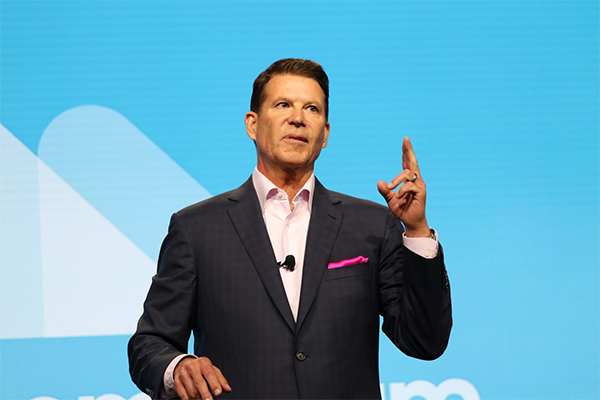Retail—like most business—is a numbers game. But considering the thin margins in which retailers operate, accurate accounting is crucial. “Margin is very important,” says Alicia Howell, vice president and controller for 7-Eleven Inc. “If you’re not paying attention to your financial statements in any industry, I’m not sure how you would analyze results and make future decisions about your business.”
Howell heads up about a 450-person accounting department at 7-Eleven that touches every aspect of the organization. It handles all of 7-Eleven’s accounting, as well as its financial reporting, corporate accounting, and property and lease accounting in the United States and Canada. The department does store-level bookkeeping and performs all processing for the company’s more than nine thousand company-owned or franchised stores in the United States and Canada under the 7-Eleven name. Approximately 90 percent of the company’s US locations are franchises. In addition to store-level bookkeeping, Howell’s department is responsible for 7-Eleven’s customer service call center, accounting for the company-owned fuel business, the company’s supply chain, and processing royalties from international licensees, excluding Japan, where 7-Eleven’s parent company is located.
To achieve all this, the department has developed experts who have technical skills from many different areas of accounting, from public to retail accounting. There are team members whose expertise comes from their long tenures with the company. “I have people on my team who have been at the company for more than thirty years who are long-time 7-Eleven subject-matter experts,” Howell says.
Hands-on Retailing
Prior to reaching her current role at 7-Eleven in 2007, Alicia Howell was part-owner of a convenience store that she helped run on the weekends while working full-time in public accounting. In addition to giving her an advantage in her work with her new employer, the experience taught Howell a lot about the struggles of small-business owners. “It really helped develop me overall as a leader and as a person,” she says.
To make use of that expertise, Howell and her team participate on steering committees for 7-Eleven’s several enterprise projects. One such project is focused on replacing the company’s legacy mainframe computer accounting system. Research for the transformational, multiyear project started in 2013, and implementation started in 2015. The transition to the new system is expected to be complete in the next few years.
“We have over two hundred resources on the project, and ultimately, the goal of it is to become more efficient, bring our system up to date, get off the legacy mainframe, streamline reports to achieve back-office efficiency, and simplify store processes,” Howell explains. “We work with franchisees to identify areas that will ultimately make it easier for stores to operate and take a lot of that back-office bureaucracy out of the system.”
Another interesting new tech development that Howell will help oversee is the company’s investigation into digital ordering and delivery of merchandise to customers. Although it might not seem like an obvious accounting-based project, Howell will need to be involved. “My team will get involved with how we account for delivery services,” she explains. “Accounting is not so boring anymore, especially when you get into the digital world.”
To deliver more than the numbers, Howell hires individuals with backgrounds in data analytics and IT. Howell, however, also focuses on soft skills such as communication and presentation. “Those skills have become more and more important as we work with operators and franchisees,” she says.
Another unique difference between Howell’s team and other accounting teams comes from the fact that 7-Eleven keeps its books on a public entity basis, even though it is a private company and does not report to any public regulator in the United States. However, 7-Eleven’s parent company is subject to financial regulations in Japan. “It’s important for me and the board to maintain a strong control environment and an effective internal control over financial reporting,” Howell says.
As a way to keep that all on track, Howell has developed a personal leadership philosophy she calls T3: technical excellence, timely execution, and team environment. “Accounting can’t be a roadblock,” she says. “We identify accounting pain points and partner with operations to improve them. When I have to say no, I also have to provide alternatives and other options to achieve results. Ultimately, we win when our franchisees win.”
As a leader, Howell strives on a daily basis to have conversations with employees and remain receptive to their ideas. Her leadership style is flexible, making sure to be approachable whether the employee is introverted or extroverted. She also believes in promoting from within. Of her nine directors, five were moved up from other positions in the department. “How we work and operate within 7-Eleven is extremely important and is occasionally more valuable than other types of experiences,” she says.
In addition to keeping a close eye on her own team, Howell and the accounting department are always seeking new efficiencies, often by automating processes. In essence, it all comes down to constantly being on the lookout for the opportunity to make positive change. “Our leadership at 7-Eleven is always challenging the status quo and open to changes,” she says. “We are open to the future of innovation and automation in accounting. We have to be able to maintain efficiency and help the company grow.”
EY is a global leader in assurance, tax, transaction, and advisory services. The insights and quality services we deliver help build trust and confidence in the capital markets and in economies the world over. We develop outstanding leaders who team to deliver on our promises to all of our stakeholders. In so doing, we play a critical role in building a better working world for our people, for our clients, and for our communities.

